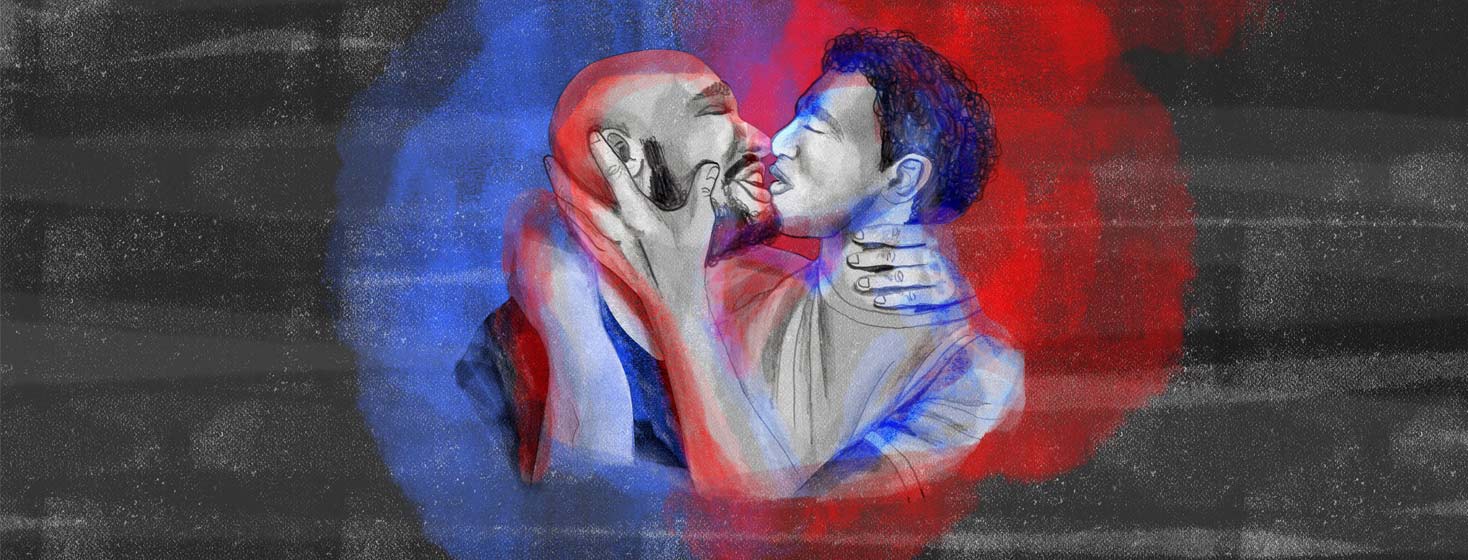Being HIV+ is Not a Crime, and That's Why I'm Speaking Out!
I learned that being HIV+ was a crime in 1989. It was during a training session for a demonstration I participated in to protest the lack of and high cost of treatment options. Two years earlier, Louisiana had passed one of the first laws criminalizing HIV.
In our coaching, we were told not to threaten anyone that might act aggressively toward us by spitting on them. This could put us in jail, charged with knowingly spreading HIV if a positive status were confirmed.
Stigma and lack of education on HIV transmission
Later, I watched police officers put on plastic gloves to avoid touching people. Their eyes showed tangible but irrational fear as they interacted with us. The stigma of HIV/AIDS and the lack of education on how it could spread added to our sense of hopelessness.
Several years later, I learned that someone who had helped me when I was homeless had been arrested and convicted under this law. It was 1992, and he was the first person in Louisiana to be punished in this manner. I had not spoken to him in years, but I remembered him as a kind person who put a roof over my head and a meal in my stomach when I felt I had no one else to turn to.
I recently spent time reading over the ruling on his conviction. It made me think about how things were at the time. Access to testing and prevention was almost non-existent, especially in rural areas such as the one where he lived.
Treatments were limited to three drugs that were beyond the reach of anyone without insurance or personal wealth. Misinformation about how HIV was contracted was widespread, and even well-populated cities struggled with funds to provide materials to get the facts out.
State laws and criminalization of HIV
These laws were written when the options we have now were only hopes and dreams; treatment regimens have brought us into a time where being undetectable also means untransmissible. PrEP is now available and is 99 percent effective at blocking HIV from being acquired by a partner. What hasn’t changed is the lingering stigma and false facts.
There are 35 states with laws that could brand me a criminal because of my status. Each of these states’ statutes tries to control or criminalize actions that can potentially expose another person to HIV specifically or under wording that bundles it with other STDs. Some even have laws that lengthen a sentence when a person with HIV commits certain crimes. In many cases, actual transmission, or intent to transmit, is not required.1,2
Criminalized behaviors
Some of the criminalized behaviors include:1,2
- Engaging in sexual intercourse or sexual behavior
- Biting, spitting or throwing fluids
- Oral sex, despite it being a low-risk behavior
Some laws rely on disclosure, whether a person has communicated to the other person that they are HIV positive. This falls into they said/they said trap for which only the individuals involved know the truth. For myself, disclosure is a private matter. Something that government should not be in the business of regulating.1,2
The problem with these laws is that they are ineffective at changing behavior. They may worsen the situation by forcing people to avoid disclosure discussions for fear of being arrested. Even worse, people may avoid getting tested altogether.1,2
Updating out-of-date HIV laws
Despite the tendency to hang on to outdated misconceptions, there has been progress. Since 2014, a dozen states have updated their laws, bringing current knowledge and science into the statutes. So, what exactly would it take to modernize these out-of-date laws?1,2
1. Require an intent to transmit
There are actual incidents of people wanting to harm another person through HIV exposure. This is not a common situation, and when it does happen, it could easily be prosecuted under other current laws. The sad truth is that many people don’t even know their status because they don’t have access to testing. They may even fear losing their families or jobs if they reveal their status. Laws built with HIV stigma implicitly in them only reinforce reticence in people to take actions that could prevent exposure.1,2
2. Allow for defense for PLWHIV, who took practical measures to prevent transmission
Whether using condoms or achieving viral suppression via a treatment regimen, these should be considered in a person’s defense.1,2
3. Decriminalize low transmission actions
Because they were written when HIV was poorly understood, the retention of these laws helps perpetuate the false narrative of how the virus is transmitted (such as spitting, biting, and oral sex). This would also require exposure to HIV to prosecute, which is currently not always the case.1,2
What can advocates do?
As advocates, we must work with legislators to create laws supporting proven methods to stem the spread of HIV. By enacting comprehensive sex education and reproductive services, needle and syringe programs, and drug dependence treatment, we can fight against the stigma and false narratives plaguing our community. Knowledge is power; we must arm people with the best information available.
I’m not a lawyer, but I am living with HIV. HIV Criminalization Awareness Day is about raising the voices of those who have been prosecuted because of their status. But for chance, I wonder if I could have been the one on trial.
So, I raise my voice for those who can’t.

Join the conversation